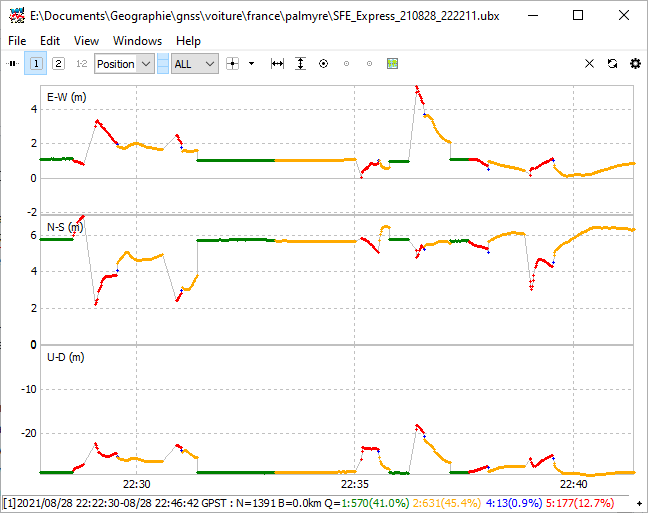Description
Express.
RTK_Surveyor_Firmware_v15RC-Aug13
I was doing some testing in static conditions with Lefebure client on my smartphone. Then, I saw in Lefebure "No data" for several seconds followed by GPS, DGPS, FloatRTTK and RTK. This appended several times. Looking at the Express's screen, the Express was restarting each time, first this splash screen, second with "Rover" and back to recording.
The attached picture is the ubx file opened in RTKLib/RTKPlot as a solution. One can see missing data.
If we convert the ubx file to rinex with RTKConv and look at it with RTKPlot as observation data, data are also missing time to time.
Looking at dynamic recording, missing data were also observed (open field road).
UBX file zipped:
Express settings:
Investigation are under way to check if the same problem was present in earlier recording.


